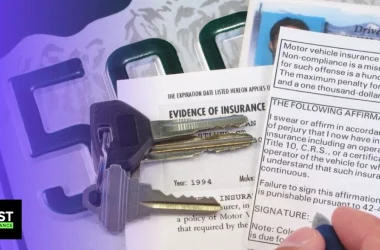Fixed-income or bond investments are generally well-known to investors. They provide a stable and low-risk source of income – making them the cornerstone of any investment portfolio its for a beginner, a veteran, or a retiree. Despite that, they’re not really risk free.
In 2020, Warren Buffett, one of the world’s most successful and renown investors of all time, said fixed-income investments “are not the way to be these days” adding that“Fixed-income investors worldwide – whether pension funds, insurance companies or retirees – face a bleak future”.
As interest rates hiked over the next two years, his prediction became a reality: the value of many fixed-income investments took a deep nosedive. Now many are wondering whether investors should avoid bond investments entirely or seek opportunities despite the risks.
What is a Bond Investment?
You make a fixed-income investment when you buy a bond. Essentially, by buying a bond, you give a loan to a certain entity, which is usually a government body or a corporation. The entity, called a bond issuer, is required to pay you back the loan after a certain period of time, as well as pay out interest a few times a year depending on the current interest rate.
So, for example, if you decide to buy a 20-year bond for $5000 with an interest rate set at 2%, then if the interest is paid twice a year, you will be making $200 a year (2% of $5000, received twice) for 20 years, making the total amount of your returns $4000, and you will of course get your original $5000 on top of that at the end of the 20-year period. The day when that happens is called the maturation date.
Some bonds investments are very long-term, reaching up to 30 years or more, while others are on the shorter side of things, spanning only a few years. This will become relevant when we turn next to discuss the risks involved in bond investment.
For now, it’s enough to note the obvious attractions of this kind of investment: it’s an almost guaranteed way of making money that does not require good judgment about the future, as opposed to stock investments. This makes it a good option for people planning to diversify their investment portfolio and looking for a stable way of getting returns amidst a not-so-stable stock market. It’s also a good way of long-term planning for retirement
However, fixed-income investments are not without their problems, and they can eventually result in financial losses despite first appearances.
Risk 1: Interest Rates
As is the case with almost everything, low risk means low returns. While bonds may offer a stable source of income throughout one’s lifetime, the payments are not that great. Investing in stocks yields much better returns for acute investors who can tell when a stock is going to really take off.
But couldn’t it just be that bonds are the better option when it comes to planning for retirement? After all, why take a risk by investing in stock when you can spend your retirement years safely living off your stable bond income?
Unfortunately, this isn’t the whole story. Even retirees were included in Warren Buffet’s bleak warning against making bond investments, after all. This is because although you may plan for the future based on the money you expect to make from your bond investment, certain unexpected events could significantly reduce your returns and mess up your plans. So even fixed-income investments are not perfectly stable, so let’s take a look at some of the risks involved in this sort of investment before you make a decision to invest.
Interest rates play a crucial role in determining the value of a bond. Suppose you invest in a bond with a 2% interest rate. If new bonds, with higher interest rates (say, 3%), become available later on, this will immediately reduce the value of the bond you’ve invested in, because it now offers less returns, and is therefore less attractive, than the new ones. Since your bond is no longer wanted by investors, its price will fall, and you will lose value if you decide to resell it.
Things can surely go the other direction. If you make a bond investment and later on interest rates go down, the bond you own will be more valuable than the newer ones with the lower interest rates, since it offers bigger returns.
In fact, when Warren Buffet made his warning, interest rates had been going for a very long time, reaching an all-time low at the time of his statement. This had likely made investors too complacent and inattentive to the risks associated with interest rate increases.
When Buffett’s prediction that the federal government would raise interest rates came true, the prices of older bonds plummeted and many investors suffered consequential losses as a result. It is, then, important to be aware of such a risk. One way of reducing this risk, I think, might be to avoid very long-term bonds as much as possible. With short-term bonds the likelihood that the bond will mature before a change in interest rates is higher.
Risk 2: Inflation
The second major risk involved in bond investment is inflation. The worry is easy enough to see: if you have a bond with a 3% interest rate, for example, and the current inflation rate is, say, 4%, then your money is losing value faster than the bond returns can compensate for.
When inflation rises, prices go up and you’re able to buy less with your money. Making money from investments is one way of guarding against inflation, but if the returns are too small relative to the inflation rate, then your investments aren’t doing you a huge favor. You should keep inflation rates in mind before investing in a bond.
Risk 3: Credit Risk
The next few risks on our list may be more opaque to some investors, but they, too, are worth taking into consideration. Recall that investing in a bond is basically the process of lending an entity, whether it be the government or a corporation, a certain amount of money, and receiving the interest payments in return. This means that the entity in question is indebted to you, so isn’t it possible for it to fail to pay you back?
It is indeed a possibility, called credit risk. Corporates, and even the government, are not guaranteed to succeed financially, and may become unable to meet their obligations to pay back what they owe if they’re in too much debt and no cash is available. When this happens, they are considered to be in default, and your bond is called a defaulted bond in that case.
Credit risk is often associated with corporate bonds, as they are much more liable to suffer a financial failure than the government is. Does this mean that you should only stick to investing in government bonds? Well, it depends. If your only goal is to minimize risk as much as possible, then by all means a government bond is a much better option.
However, government bonds typically yield smaller returns than their corporate counterparts. So when making a bond investment decision, you have to ask yourself whether investing in a corporate bond to get better yields is worth the risk of losing your money if the corporation goes bankrupt.
There are agencies that specialize in evaluating the performance of corporations in order to determine whether they are safe for investors to place their bets on. Agencies such as Moody’s, Standard & Poor’s, and Fitch, all give certain ratings to corporates based on how reliable and stable they are as an investment option, which is usually called their creditworthiness.
Being an investor, you should check the creditworthiness of any corporation you’re interested in as measured by these agencies before making up your mind, so as to avoid unnecessary risks. They all provide guides on how to interpret the ratings they give.
It’s also worth noting that since these agencies are well regarded by investors, the creditworthiness of a company affects the value of its bonds. If a company’s creditworthiness is low, or if it is downgraded, that is, if its ratings go down, then it is perceived as a not-so-good option, and its value declines.
This can happen in many cases. For example, a natural disaster may be predicted to affect the performance of companies in a certain sector. In that scenario, the companies of this sector are downgraded and investors suffer losses. A subtler example is when it is projected that a company in the AI industry, say, will acquire another company.
Acquisitions require cash, and so they place a burden on the acquirer’s cash reserves and debt burden. In such a case the acquirer may be downgraded because its ability to commit to its debt obligations is compromised.
So, What Should You Do?
The bottom line is that fixed-income investments are not, contrary to some might assume, completely risk free. This is not to say at all that they are of no value: they’re a good option for those planning for retirement over the long term, or those who are overall doing well financially but are looking to secure a safe and long-term source of income without worrying too much about the volatility of the stock market.
More generally, it’s always good for an investment portfolio to be diverse; one needs investments in bonds to act as a safety net to fall back on when the stock market is too unstable.
Being aware of all the risks laid out here should help you to make a wiser decision before investing in a bond without thinking hard about it. Consider the likelihood of current interest rates going up or down, look at the inflation rate to see whether you’ll be making actual profits from the investment, check the creditworthiness of the company you’re interested in, and finally, think of how much risk you’re willing to take based on your own financial situation.
Disclaimer
Please visit and read our disclaimer here.









